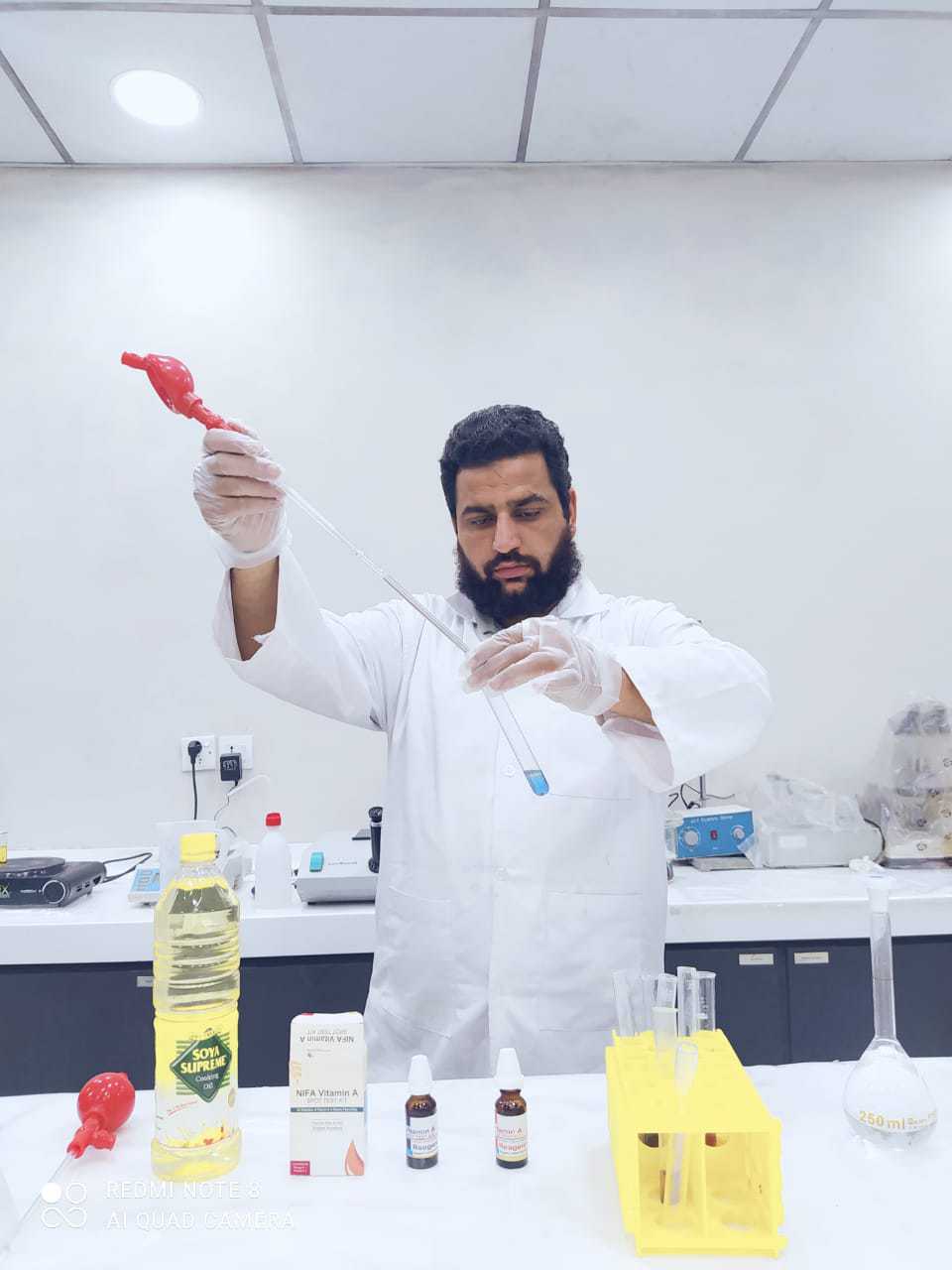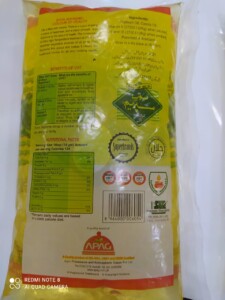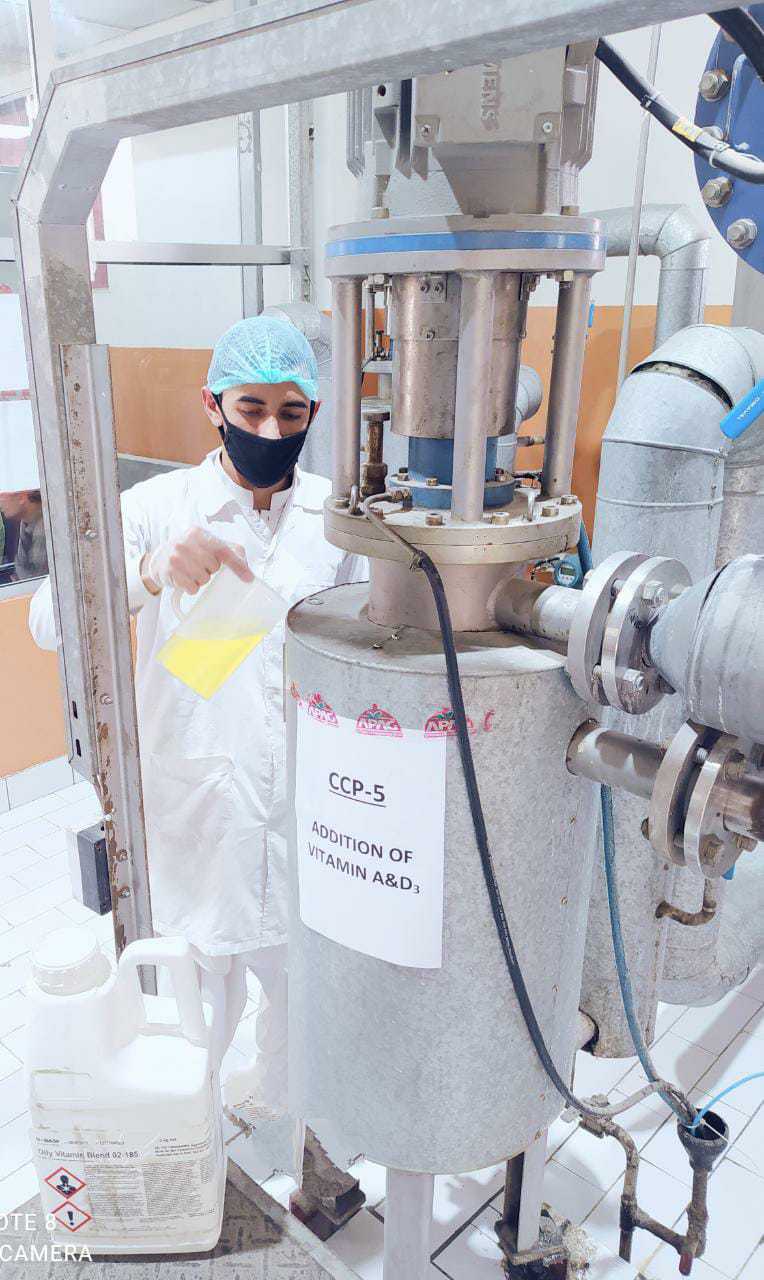Field Story
In photos: A look at fortified rice distributed through social safety net programs in Bangladesh
December 7, 2023
Nutrition International helped turn food fortification regulations into reality in Pakistan
Nutrition International worked closely with industry and government regulatory bodies to realize widespread fortification of edible oil with vitamin A and D in Pakistan. Oil millers and staff from provincial food authorities share their experiences working with Nutrition International.
Posted on April 26, 2021
When asked why his company participated in the Food Fortification Programme (FFP), Muhammad Umer, quality assurance manager at Agro Processors and Atmospheric Gases Pvt Ltd in Karachi, Pakistan, answered simply: “It is addressing the issue of malnutrition in Pakistan.”

The Food Fortification Programme, implemented by Nutrition International and Mott MacDonald and funded with UK aid from the UK government, enabled mills operating in the formal sector in Pakistan to successfully fortify 95% of edible oil with vitamin A and D. These micronutrients are essential for developing healthy immune systems and bone growth, respectively. Women and children are particularly hard hit by vitamin A and D deficiencies according to Pakistan’s 2018 National Nutrition Survey. Additionally, vitamin A deficiency is the leading cause of preventable blindness in children and night blindness in pregnant women. Over a five-year period, the programme worked closely with key stakeholders to bridge gaps between regulations, implementation and enforcement to create widespread industry change.
As Nutrition International continues to further food fortification efforts in Pakistan, millers and staff of the public sector food authorities shared their experiences working with the Food Fortification Programme.
Training and quality assurance
The training provided by Nutrition International helped Umer’s mill to improve their process for fortification to make it more consistent. “When we attended the training organized by Nutrition International, the master trainers were available,” he shared. “They provided us with very good knowledge and solutions for these problems. They helped to really improve our existing system.”
“We are responsible because we are the ones producing. If the population in Pakistan is not aware of the necessity of a fortified product, we, the producers, we, the manufacturers, are responsible.”
— Muhammad Umer, Quality Assurance Manager, Agro Processors and Atmospheric Gases Pvt Ltd
One of the improvements included streamlining the process of adding the vitamin A and D premix solutions to the oil, highlighting the exacting temperature and timing requirements for proper mixing. Umer also emphasized the benefit of using the rapid testing kits provided by FFP to test the quality in house before the product was verified by a third-party lab.
Once results were confirmed, packages of edible oil received the seal of approval − literally. FFP, working with government, created a fortification logo to go on the packaging of all fortified edible oil and ghee products to allow a customer to easily identify which products are fortified. Umer is using it to guide shopping habits in his own family, practicing what he preaches at home. “As a quality assurance manager, I told my wife, whenever you are going to purchase anything from the market, first you see the label and check that it is fortified or not,” Umer shared. “And as edible oil is concerned, you have to check if the FFP logo is present.”
Regulatory bodies
FFP worked closely with all provincial food authorities to streamline regulations and ensure consistency across provinces.
Dr. Seema Ashraf, a public analyst with the Sindh Food Authority, highlighted the support Nutrition International provided in training, awareness, and technical operations as particularly important for medium and small-scale mills who would feel the upfront cost of fortifying more acutely than large-scale mills. “First we faced some reluctance,” she said, “but now all are committed on it.”

As a food safety auditor, Dr. Seema noted the connection between the public health objective, technical regulations and legal specifications is essential for successful food fortification. “Food fortification is very cost effective and powerful as a sustainable strategy to combat micronutrient deficiencies with the potential to reach a large section of the population with minimal cost and efforts,” she shared.
“The programme was very successful,” said Dr. Shazia Yaqub, a public analyst with the Punjab Food Authority. Like her counterpart in Sindh, the authority is responsible for checking if foods are safe and appropriately fortified within the correct range as specified in the food standard.
“The first benefit we received was capacity building,” Dr. Shazia said. FFP provided high-performance liquid chromatography (HPLC) equipment to measure the amount of vitamin A and D found within products. “They not only provided the instrument, but along with that, they also provided a person trained on using HPLC for this purpose.” This type of targeted support drove capacity building.
Collaboration and teamwork
Bahram Khan is the process manager at Mahboob Industries in Lahore, Punjab. Khan became a chemical engineer wanting to pair his knowledge with the food industry. “I have an interest to improve food processing as a human being. That is the main reason I joined this food industry. I noticed numerous points that needed to improve,” he said. His company’s partnership with FFP was a natural collaboration.
Prior to the support provided by Nutrition International through FFP, his mill was manually fortifying their edible oil and ghee products. After participating in training, they added dilution tanks to the process. “That improved the fortification, no doubt about it,” he said.
“We were 100% sure we wanted to adopt this system no matter if we had to do a few changes to our processing line… if you want to do something, everything becomes easier.”
— Bahram Khan, Process Manager, Mahboob Industries, Lahore, Punjab
One of the key aspects of training was underscoring why something needed to be done; whether it was the importance of testing, maintaining data, or the need for fortification in general to target micronutrition deficiencies in Pakistan’s public. But Khan highlighted that how the training was done also stood out to him: “One more point I would like to add is the behaviour of the team. That was very different, very friendly. That helped us and also gained our interest in the programme. The Nutrition International team boosted our energy levels so that we should help this impressive programme.
When asked if there were challenges along the way, Khan referenced mind over matter, explaining, “We were 100% sure we wanted to adopt this system no matter if we had to do a few changes to our processing line… if you want to do something, everything becomes easier.” He said he feels a responsibility as a food processor to help people avoid preventable problems with their health. “I, myself, am 100% sure that we will continue this fortification. We will keep up the good work and fortification will be continuing with testing.”
Setting an example
Across companies, employees spoke about that sense of responsibility to provide customers with a quality product that is fortified in line with government regulations and that will benefit public health. “Nutrition International staff told us how essential the fortification is and the prevalence of the deficiencies we are facing,” said Haroon Qadir, production manager with Khalis Group of Industries in Sheikhupura, Punjab. “We are responsible because we are the ones producing. If the population in Pakistan is not aware of the necessity of a fortified product, we, the producers, we, the manufacturers, are responsible.”

He said the programme helped to standardize all parts of the fortification process. “Everything has been channelized: regarding the purchase orders, regarding the delivery, regarding the testing, pre-testing, after addition testing, regarding the final product, how much pre-mix has been added, how much product has been fortified. Everything is included.”
Qadir also said the subsidy initially provided as part of the programme can be an example for other industries. For the first six months, FFP covered 20% of the micronutrient fortification premix and 10% for a further 18 months. Mills were only able to receive the subsidy once their product was confirmed to be fortified within the recommended range. Qadir said the subsidy served as an incentive to bring mills into the programme, especially for smaller mills who would feel the burden of the premix supply cost. “When the attraction of subsidy is there, it gets you into the loop of fortification. Once in the loop, then you follow the legislation.” He said the programme can serve as an example of how to attract industry players from other staple food groups to the table where the standard for fortification isn’t yet being met.
Nutrition International will leverage its learnings as it continues to work closely with the Government of Pakistan to improve food fortification in other industries with new funding from the Government of Canada and the Bill & Melinda Gates Foundation. The programme will continue to address the crisis of malnutrition and improve the health of women and children by creating sustainable systems to fortify staple foods that improve daily diets.